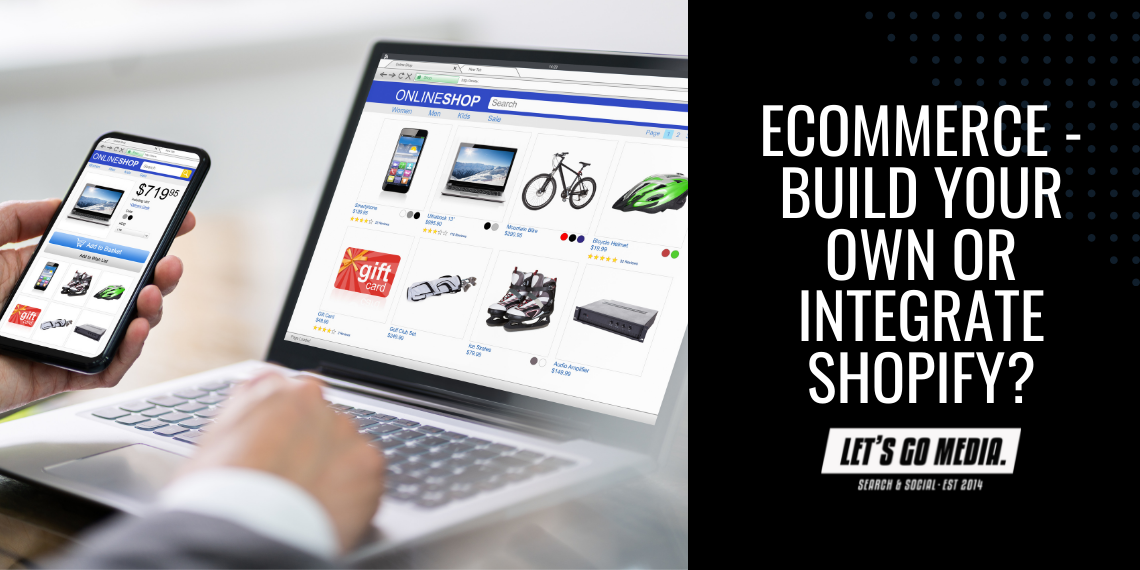eCommerce – Build Your Own Or Integrate Shopify?
If the pandemic has taught us anything in business, it’s that the ability to make sales online is now vital for operational success. The question is, how do you go about building the ecommerce element of your business? There are two ways – building your own custom ecommerce functionality on your website or using a ready-made platform like Shopify.
There are pros and cons to both, as well as a number of elements to consider. Let’s take a look at how these all weigh up:
The Costs Involved
At the outset, Shopify looks like the cheaper option. This is because you don’t have to pay a hefty fee to get your website developed. You pay a monthly or yearly subscription fee to the platform and then you can set up your online shop using their plug-and-play options. The fees range from the Lite plan at $9 a month all the way through to the premium option for enterprise level organizations, which starts at $2000 per month.
When building your own website, the initial outlay can be very hefty. The exact price you’ll pay will depend on the customization you require for your online store and the developer you work with. You also need to consider regular fees like domain registration, web hosting and ongoing maintenance. It’s likely though that these fees will cost less in the long run than the ongoing subscription to Shopify if your organization is larger and does lots of sales.
Getting Set Up
The setup time and effort are two more major considerations. If you want to get going immediately, then Shopify is a good option. It’s possible to get your online store going in a matter of hours after signing up to Shopify. A custom-built website will take a lot longer because you have to design everything before your developer can start building.
For both options, you will need to take the time to get good images and videos for what you’re selling, as well as strong writeups on each item. Without those, your store will never work online.

Security And Payment Options
An online store needs to have excellent security because you are asking your customers to put in sensitive information like credit card details and shipping addresses. With Shopify, you get a guarantee of security for both you and your clients. Without this guarantee, Shopify wouldn’t be able to operate in the current digital climate.
Another major win with Shopify is that it has a host of built-in, secure payment options that are fee-free for transactions. The platform also allows you to integrate with a range of third-party payment options.
When developing your own online store, you’ll need to be hyperaware of security. You will also be liable for any breaches of security that occur on your website. Another point you need to consider is how many payment options you offer your customers. People like options to pay in ways that suit them, but this means having multiple connections on your website.
Customization And Flexibility
It may seem like Shopify is a clear winner in this debate, and for many small businesses and even larger ones, it is. However, for those who want something unique or need a far greater level of customization on their online shop, Shopify will not be able to help you. Even with all of the templates and options for designs on Shopify, you’ll still find that there are shops that look the same as yours once you’ve finished setting up. This makes it hard for a business to stand out in the online shopping world.
We have been building customized, mobile-responsive, eCommerce websites for over a decade – contact us today for a quote
